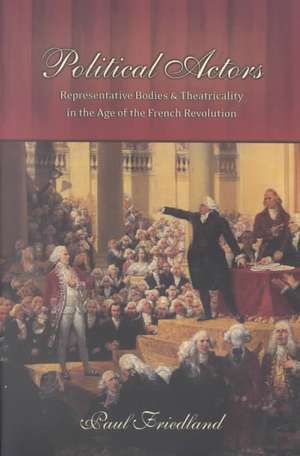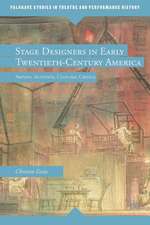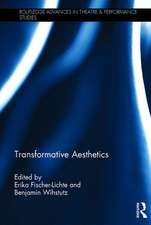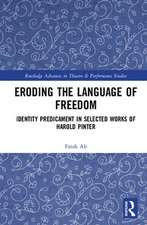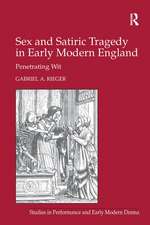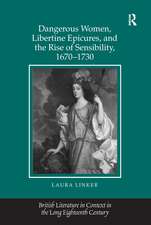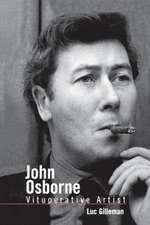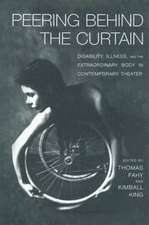Political Actors – Representative Bodies and Theatricality in the Age of the French Revolution
Autor Paul Friedlanden Limba Engleză Paperback – 17 iun 2002
| Toate formatele și edițiile | Preț | Express |
|---|---|---|
| Paperback (1) | 302.66 lei 6-8 săpt. | |
| MB – Cornell University Press – 17 iun 2002 | 302.66 lei 6-8 săpt. | |
| Hardback (1) | 711.32 lei 6-8 săpt. | |
| MB – Cornell University Press – 17 iun 2002 | 711.32 lei 6-8 săpt. |
Preț: 302.66 lei
Nou
Puncte Express: 454
Preț estimativ în valută:
57.94€ • 60.32$ • 47.70£
57.94€ • 60.32$ • 47.70£
Carte tipărită la comandă
Livrare economică 31 ianuarie-14 februarie 25
Preluare comenzi: 021 569.72.76
Specificații
ISBN-13: 9780801488092
ISBN-10: 0801488095
Pagini: 368
Ilustrații: 1 chart, 11 halftones, 1 line drawing
Dimensiuni: 153 x 236 x 22 mm
Greutate: 0.51 kg
Editura: MB – Cornell University Press
Locul publicării:United States
ISBN-10: 0801488095
Pagini: 368
Ilustrații: 1 chart, 11 halftones, 1 line drawing
Dimensiuni: 153 x 236 x 22 mm
Greutate: 0.51 kg
Editura: MB – Cornell University Press
Locul publicării:United States
Descriere
From the start of the French Revolution, contemporary observers were struck by the overwhelming theatricality of political events. Examples of convergence between theater and politics included the election of dramatic actors to powerful political and...
